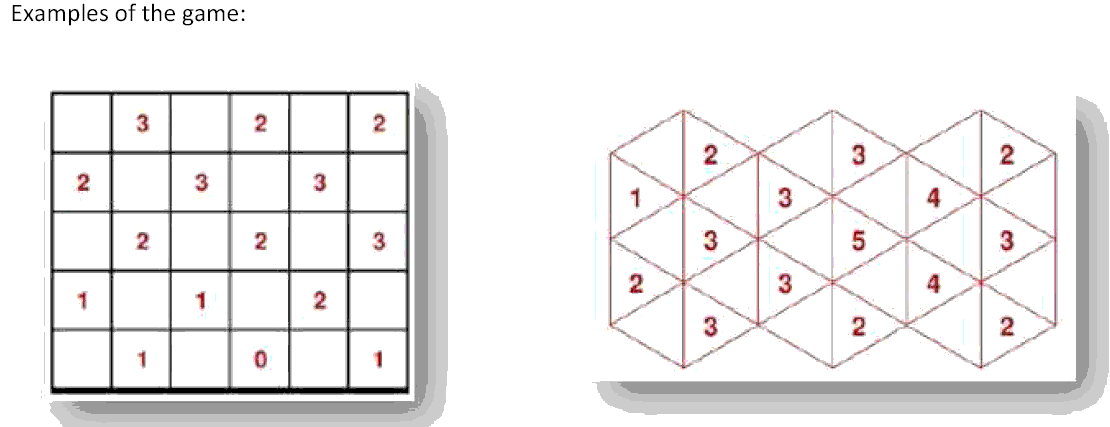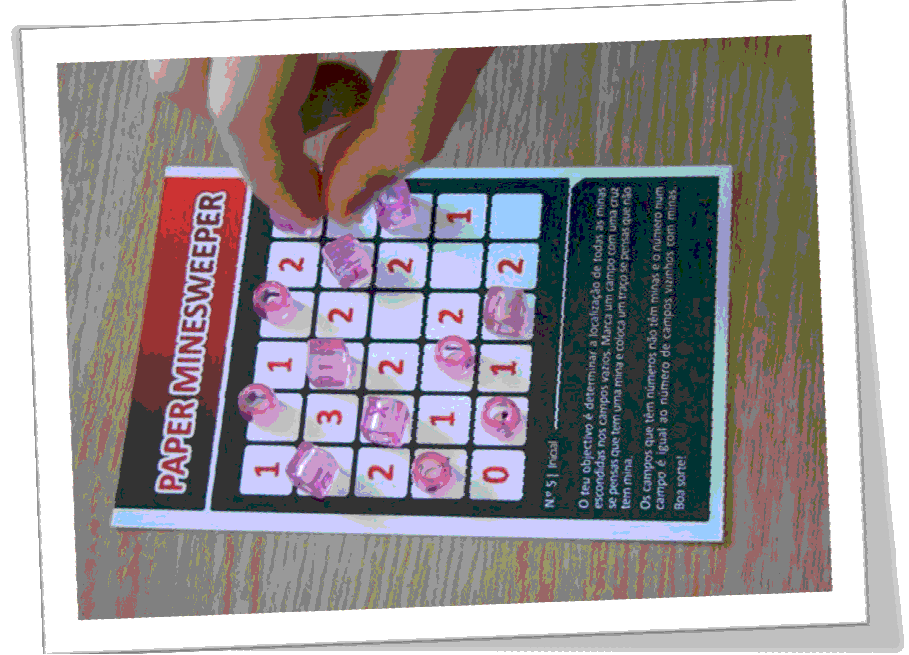Minesweeper and spectral analysis
It is shown that certain configurations of open cells guarantee the existence and the uniqueness of solution. Mathematically the problem is reduced to some spectral properties of discrete differential operators. It is shown how the uniqueness can be used to create a new game which preserves the spirit of "Minesweeper" but does not require a computer.

ArticleO.German, E.Lakshtanov, Application of harmonic analysis for creating of pen-and-pencil games. Math. Notes, vol. 88, 5-6, 2010.
Arxiv O.German, E.Lakshtanov, "Minesweeper" and spectrum of discrete Laplacians, Applicable Analysis, Vol. 89, No. 12, December 2010, 1907–1916.

| 
